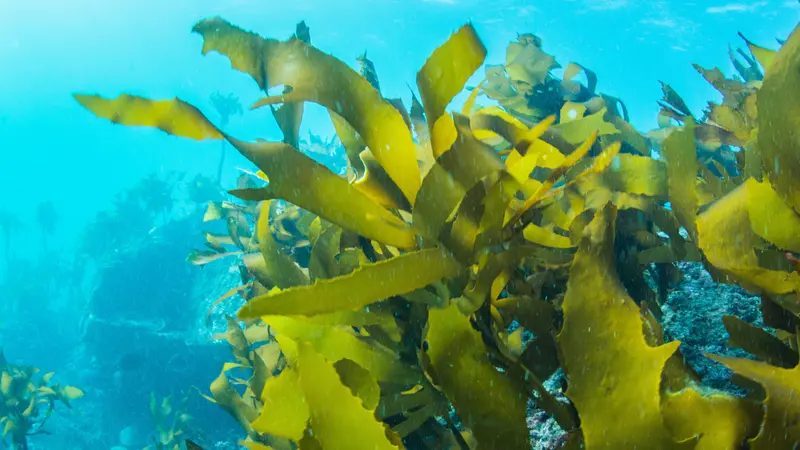

Planet and People Connection

Planet and People Connection
Could Seaweed-Fed Livestock Help Climate Change?
Global meat and dairy industries are facing increasing criticism due to the high levels of methane produced by livestock. It's estimated they contribute about 4% of greenhouse gas emissions overall. In response, many companies are looking to feed additives to help reduce methane emissions.
Feed additives can be derived from a variety of plants, including lemongrass, citrus, garlic, and most notably, seaweed. While most feed additives reduce methane emissions by around 30%, studies show that mixing small amounts of a red seaweed called Asparagopsis with bovine feed can push emission reduction to 80%. “I have never seen any additive that could reduce methane emissions by so much,” said Ermias Kebreab, a professor in the Department of Animal Science at UC Davis.
Several companies working to produce Asparagopsis in large quantities are running studies to determine the health effects of the additive on livestock. Sea Forest, an Australian start-up, is working to find the most effective way to nurture the red seaweed through its life stages until it is ready to be harvested. The seaweed is then contracted out to dairy and wool farmers, who work with researchers to compare control groups, which are fed a normal diet, with seaweed-fed livestock, in order to track milk production, wool quality, and livestock health. These studies continue to build upon current research, in the hopes that the seaweed additive can be used on a global scale to reduce methane without harming livestock, or their meat and milk production.
Short-term studies suggest seaweed is safe for livestock to consume in low doses, but no long-term studies exist to support such findings. Australia’s National Science Agency found that a cattle diet comprised of only 0.2% Asparagopsis reduced cattle methane emissions by 98%. However, a separate study discovered a 6.5% decrease in milk production in cattle fed the red seaweed.
While more research is needed before the additive can be introduced on a global scale, the possibilities are promising.
REFERENCES
Emont, J. (2020, October 31). Cows make climate change worse. Could seaweed help? The Wall Street Journal. https://www.wsj.com/articles/cows-make-climate-change-worse-could-seaweed-help-11604152802?


 By
By






